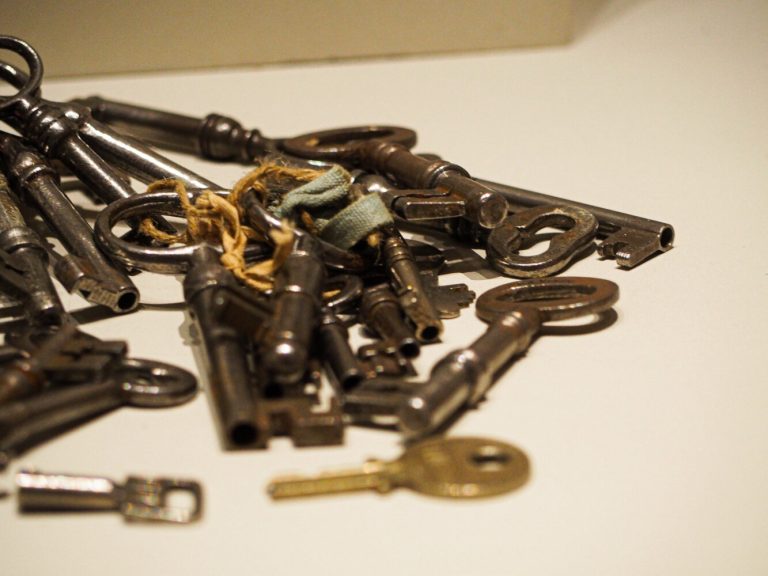It is not uncommon to have a collection of keys from earlier periods of your life lying around in a cupboard. There is not always someone around who knows what they once were used for. Now just such a collection of keys has been donated to the Nobel Prize Museum in Stockholm. They all belonged to Swedish author Eyvind Johnson, who was awarded the Nobel Prize in Literature fifty years ago this year.
“I’ve been told that for ages, no one has known what these keys were for,” says Carin Klaesson, curator at the Nobel Prize Museum. “They remained as remnants of earlier phases in Eyvind Johnson’s life.”
Eyvind Johnson’s family, who are donating the keys, have long referred to this collection as “Krilon’s Keys”. This is an allusion to Eyvind Johnson’s trilogy of novels about Krilon, a fictitious Stockholm real estate broker, where one chapter is called “Johannes Krilon’s Keys”. The books were published between 1941 and 1943 and reflect the ongoing World War. In the chapter about the keys, Krilon contemplates his life from the point of view of a box of old keys:
… Memories of keys tied together, of pairs of keys that were divided, memories of key siblings that belonged together and were separated, of lone keys and key rings where a single key remained as a testimony to the set of keys that had once been a home, a world.
The Krilon trilogy falls roughly in the middle of Eyvind Johnson’s oeuvre, after a series of autobiographical books and before his suite of historical novels. In 1974 he was awarded the Nobel Prize in Literature “for a narrative art, far-seeing in lands and ages, in the service of freedom”.
At the same time as Eyvind Johnson’s artefact was unpacked, the Nobel Prize Museum was opening its new exhibition These things changed the world, which displays more than 200 such artefacts donated by laureates over the years.
About the Nobel Prize Museum’s collection
The Nobel Prize Museum’s collection of artefacts reflects the various subject areas of the Nobel Prize and the activities, interests and personalities of the laureates. The origins of these artefacts vary. Most of them were donated to the museum by the laureates themselves. Others have arrived at the museum by other routes. It does not seem strange that instruments and equipment are a part of scientific research. Or that pens and manuscripts tell us about authors’ works. But what do suitcases, caps and musical instruments say about the lives and achievements of Nobel Prize laureates? How can a pair of nail scissors, a bicycle, or a jar of peanut butter tell us anything about creativity and insights?
Press images: https://www.nobelprize.org/press-images-these-things-changed-the-world
Read more about the exhibition These things changed the world :
https://nobelprizemuseum.se/en/these-things-changed-the-world/
For more information, please contact
Nobel Prize Museum
The Nobel Prize shows that ideas can change the world. The courage, creativity and perseverance of the Nobel Prize laureates inspire us and give us hope for the future. Films, in-depth tours, and artefacts tell the stories of the laureates and their contributions “for the greatest benefit to humankind”. Based on the Nobel Prize’s unique combination of fields – natural sciences, literature and peace – we examine the greatest challenges of our time and show how we can respond to them through science, humanism and collaboration. With our exhibitions, school programmes, lectures and conversations, we at the Nobel Prize Museum strive to engage the public in making a better world. Today we are located on Stortorget, the main square in Gamla Stan, Stockholm’s Old Town district. We are planning to create a new home for our public outreach activities at Slussen in central Stockholm.
Disclaimer: The Nobel Prize Museum is not directly or indirectly involved in the process of nominating or selecting Nobel Prize laureates. These procedures are strictly confidential and regulated by the Nobel Prize awarding institutions.
© Nobel Prize Museum 2024. Nobelpriset®, Nobel Prize® and the Nobel Prize medal are registered trademarks of the Nobel Foundation.
